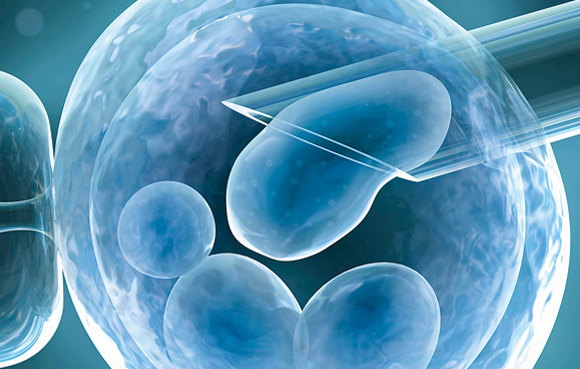In vitro fertilization is a controversial fertility procedure that involves creating and sometimes destroying embryos who already are unique human beings in their earliest stage of existence.
A new report from Live Action News estimates millions of embryos have been destroyed and countless others are being stored indefinitely in freezers in fertility clinics across the globe, never to be given a chance at life.
Every year, about 2.5 million embryos are created through in vitro fertilization (IVF) across the world, and about 500,000 babies are born as a result, according to research published in Reproductive Biomedicine Online. Many die in miscarriages, which are common in both natural and IVF pregnancies, but others are destroyed or frozen indefinitely – creating practical and ethical concerns.
In a 2019 interview with NBC News, Florida fertility Dr. Craig Sweet said about 21 percent of the embryos stored in his clinic have been abandoned.
The report continues:
There is no limit on how long embryos can remain frozen in the United States, and fertility clinics don’t know what to do with the ones that have been abandoned.
“The American Society for Reproductive Medicine (ASRM), the main guiding society for fertility doctors, has put out numerous papers indicating embryos are deserving of respect,” Sweet told NBC. “This idea of abandoned embryos is an ethical conundrum.”
Some embryos are destroyed because the parents do not want more children, while others are genetically tested and destroyed because their DNA shows certain traits or medical problems that the parents do not want. Research published in the Journal of Assisted Reproduction and Genetics found that about 73 percent of fertility clinics in America offer gender selection IVF.
REACH PRO-LIFE PEOPLE WORLDWIDE! Advertise with LifeNews to reach hundreds of thousands of pro-life readers every week. Contact us today.
The exact number of destroyed embryos is unknown, but there are estimates.
Statistics from the Human Fertilisation and Embryology Authority in England show 3.5 million human embryos were created through IVF between 1991 and 2012, and 1.4 million were implanted into their mothers’ wombs, according to the report. However, almost 1.7 million were destroyed and 840,000 were placed in storage, the report continues.
In the United States, the Centers for Disease Control reported 330,773 IVF procedures in 2019, with 83,946 babies being born alive. CDC data indicates about 120,000 eggs and embryos were frozen in 2019 for possible future use.
The infertility procedure, which is now widely used, involves taking eggs and sperm from the mother and father and creating embryos outside the womb. Then, one or more embryos are implanted in the mother’s womb while others are frozen, potentially for later use.
The new technology has created both legal and ethical problems. Separated couples have been battling in various court cases about the fate of embryos that they created and stored, often with one parent wanting them destroyed or stored indefinitely and the other wanting to give the children a chance at life through implantation or adoption.
For pro-life advocates, the biggest concern with the procedure is that fertility clinics often create more embryos than are used, and some are frozen indefinitely or destroyed. Though in the earliest stages of development, these embryos already are human beings with their own unique DNA.
Some embryos are destroyed or donated to scientific research, which also kills them; however, growing awareness has others being adopted through life-affirming embryo, or “snowflake,” adoptions.








